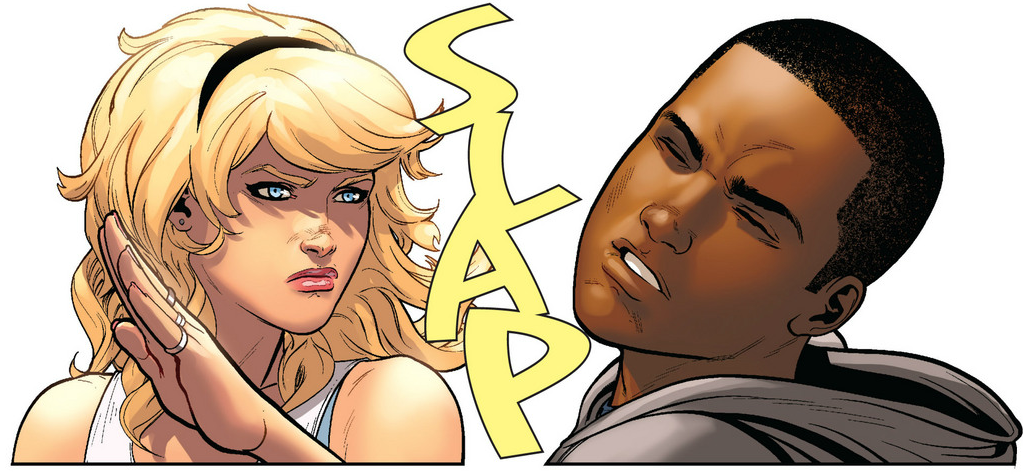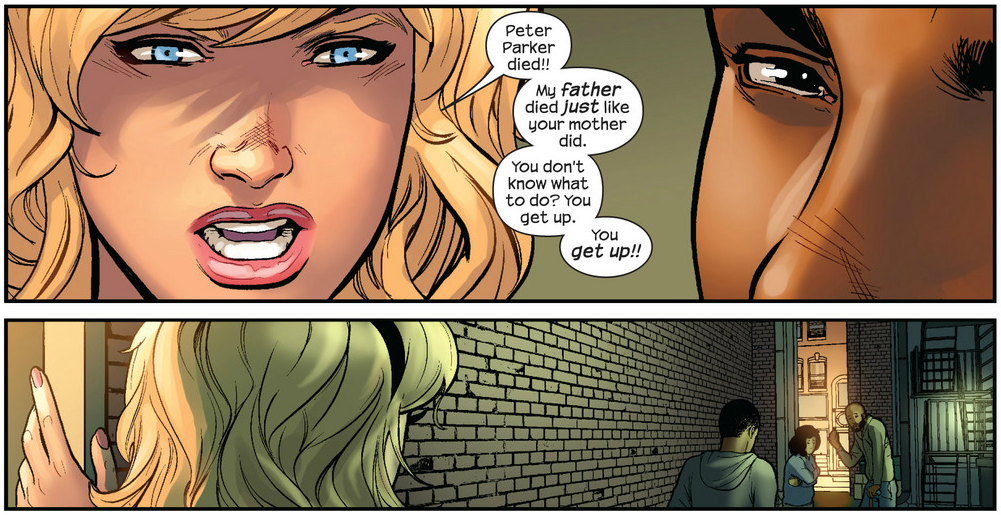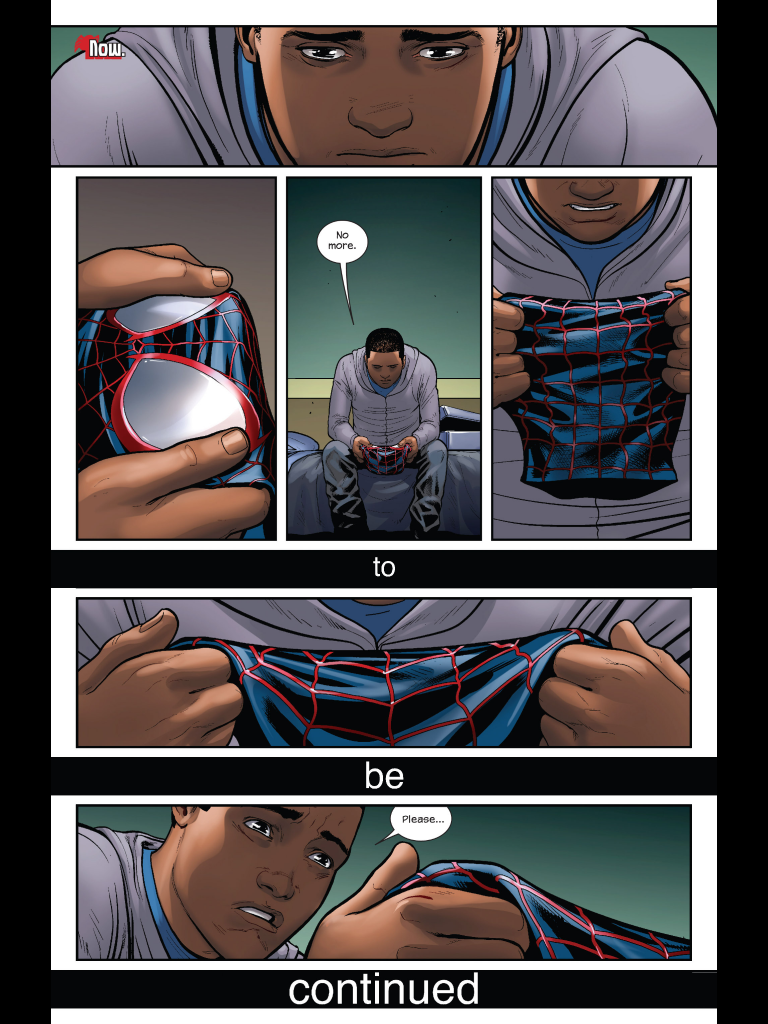In the latest issue of Ultimate Spider-Man, the young former wall-crawler Miles Morales chooses not to get involved in a street fight between 3 super-people, and Gwen Stacy slaps him in the face.
Miles quit being Spider-Man after his double life cost his mother her life. One year later, he’s starting to enjoy life again. He has time to study at school, he has a girlfriend, and his relationship with his father has never been better. He seems to be happy, and as a reader, I’m happy for him. Miles went through hell in his months as Spider-Man, and it tore his family apart. Now he seems to have found some sort of satisfaction in life.
Of course, it’s a foregone conclusion that Miles is going to put the mask on again (the book is called Ultimate Spider-Man) but I’m beginning to feel like I don’t want him to, probably because of the way those who know his secret keep trying to bully him into suiting up. Gwen Stacy, Spider-Woman, even his best friend Ganke won’t get off his back. It raises an interesting question: Why shouldn’t Spider-Man be allowed to retire?
Spider-Man’s guiding star has always been “with great power there must also come great responsibility.” That’s really the mindset behind all super heroes – you have these gifts and you can save people/Earth/The Universe and if you don’t use them then you’re ultimately responsible for all the death and destruction you could have prevented. Often, superheroes first spring into action because of the threat of some villain that only they can defeat, but once that villain is defeated and they’ve realized their potential for good, they stick around, easily besting regular street crime until the next super-threat inevitably pops up.
The thing is, in the world of Marvel Comics, there are tons of superheroes. When someone in a costume makes the questionable decision to threaten Marvel’s New York, they’re equally likely to be confronted by Spider-Man, Daredevil, the Fantastic Four, the Avengers, the X-Men – and that’s just the A-list. Even in the Ultimate Marvel universe, where the hero population is much smaller due to their habit of dying and staying dead, there’s no shortage of capes and costumes to pick up the slack.
In fact, that super-fight in the new Ultimate Spider-Man? It already included the crime-fighting duo Cloak & Dagger. There were already TWO superheroes on the case. And yet Gwen Stacy was still so angry at Miles for not jumping in that she actually hit him. (Not cool, Gwen.)
Miles Morales is a sweet kid. That’s why readers respond so well to him. He’s a new superhero, but he’s also very much in the old-school vein of Superman or Captain America. As Spider-Man he had no personal agenda. He wasn’t after glory or revenge or even trying to “get the girl.” He became a superhero for all the right reasons, to a greater extent even than Peter Parker. And it brought him nothing but misery.
Pouring all this guilt onto the head of a sixteen-year-old kid for wanting a normal life after seeking an extraordinary one led to a horrible tragedy is borderline evil. In the universe next door, Wolverine is trying to build a world where kids born with super powers don’t have to become soldiers. Miles may not have been born with his powers, but he didn’t choose to have them. And for a while, he used them to fight evil, even when Nick Fury, Captain America, and even Spider-Woman, who’s now trying to guilt him out of retirement, tried to stop him. He battled criminals, he rescued innocents, he even fought in a damn civil war. In the short time he was Spider-Man, he made a big difference. The last Spider-Man died at the age of 16. Why is it expected that Miles, or any superhero for that matter, has to keep fighting until they’re dead?
Creators Brian Michael Bendis and Sara Pichelli (and now the terrific David Marquez) have done something rare here: they’ve created a superhero so likeable that I actually don’t want him to be a superhero anymore. I want him to have a happy ending, and superheroes don’t get those. He doesn’t want this life, and I don’t want it for him.




